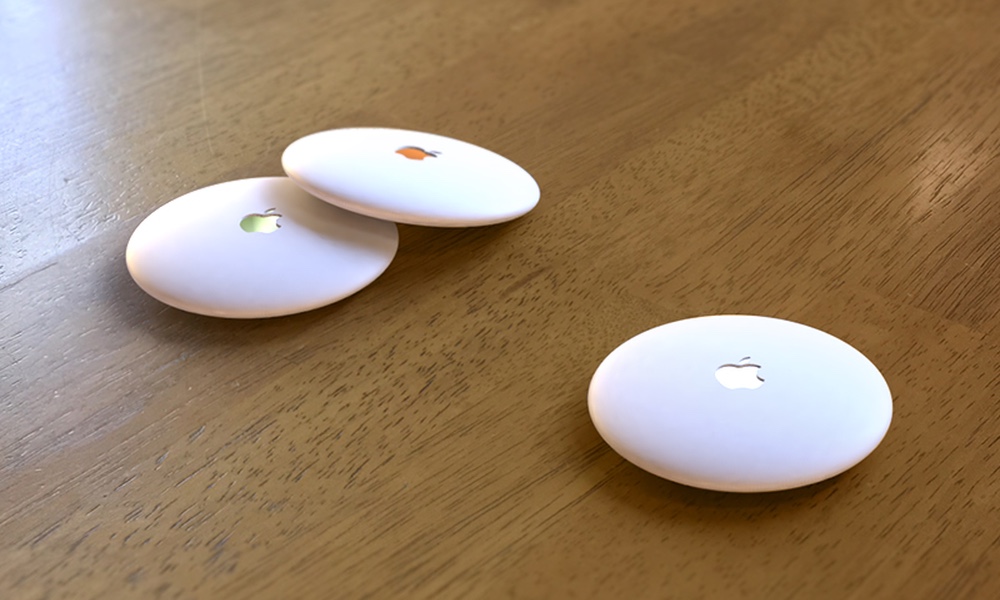Tile Is Calling for an Antitrust Investigation Against Apple Before AirTags Have Even Been Announced
 Credit: MacRumors
Credit: MacRumors
Toggle Dark Mode
Even though Apple’s much-rumoured AirTags haven’t even seen the light of day, it’s become clear that they’re already making its competitors nervous, to the point where at least one of them has been making antitrust claims accusing Apple of anti-competitor behaviour for a product that it hasn’t even released yet.
Apple’s AirTags are expected to be small tags designed to be attached to personal items like keychains to help users track them using a crowdsourcing network of iPhones and other Apple devices. If this sounds similar to what Tile is already doing with its item-tracking tags, that’s because it is, although one could certainly argue there should be room for more than one company making the same type of product. After all, that’s what a free market is all about.
Except that Tile doesn’t quite agree. Earlier this year, the company began raising concerns with Congress, alleging that Apple has been engaging in anti-competitive behaviour by making changes to iOS 13 that it claims makes its own products more difficult to use, while at the same time planning a release of its own competing solution.
To be fair, Tile’s comments back in January came as the result of an invitation by U.S. lawmakers to speak to its antitrust subcommittee, and Tile joined a number of other smaller companies in raising complaints against the various bigger tech players. Now, however, it seems like Tile is taking the gloves off against Apple in a more direct approach, this time to European antitrust regulators.
According to The Financial Times, Tile sent a letter to European competition commissioner Margrethe Vestager this week, once again raising its earlier argument that Apple has been making life more difficult for Tile and its users, all the while giving preferential treatment to its own Find My app — the same app that will undoubtedly be used to power AirTags.
As Tile explains in its letter, Apple has been “selectively disabling features that allow for a seamless user experience” with its iOS 13 release, such as making it more difficult for Tile users to grant permission for the app to track location information in the background — a change that Apple insists it made for privacy reasons, rather than anticompetitive ones.
In the past twelve months, Apple has taken several steps to completely disadvantage Tile, including by making it more difficult for consumers to use our products and services.
Kirsten Daru, Tile’s general counsel
Still, the fact that Apple’s Find My app comes built in to every iPhone and has this permission effectively enabled by default gives the company an advantage, and it doesn’t look too good for Apple since, as Tile says, it “began preparing for the launch of a new hardware product” around the same time.
In addition, Tile also claims that its product is being denied “equal placement” on the App Store, and pointed to the fact that Apple has also terminated its agreement to sell Tile products in its physical retail stores, which Tile claims was done in anticipation of the launch of its own competing product.
Apple’s Response
In a statement to The Financial Times, Apple naturally denied Tile’s allegations, reiterating that the changes Apple made in iOS 13 were part of its decade-long path toward improving user privacy, and accusing Tile of launching a “meritless attack” simply because it doesn’t like Apple’s decisions.
Consistent with the critical path we’ve been on for over a decade, last year we introduced further privacy protections that safeguard user location data. Tile doesn’t like those decisions so instead of arguing the issue on its merits, they’ve instead decided to launch meritless attacks.
Apple
Apple certainly has lots of evidence to back up its stance that this is more about privacy than anything else, as the past couple of years have seen some pretty shocking abuses of location privacy, with tons of invasive location data being collected and mined by dozens of different apps, and yet by all estimations this has signfiicantly improved with the changes in iOS 13.
So according to Apple, Tile’s business model is simply an unintended casualty of this privacy decision, whereas Tile naturally sees Apple as trying to push it out of the market completely. In reality of course, the truth is probably somewhere in the middle, and while the European Commission is already investigating Apple after Spotify filed an antitrust complaint last year, Tile clearly hopes that its complaint will cause the regulators to look at Apple from another angle as well.
The Commission has naturally declined to comment on its preliminary investigation into the Spotify complaint, and so far has only acknowledged that it has received the letter from Tile and “will reply in due course.”






